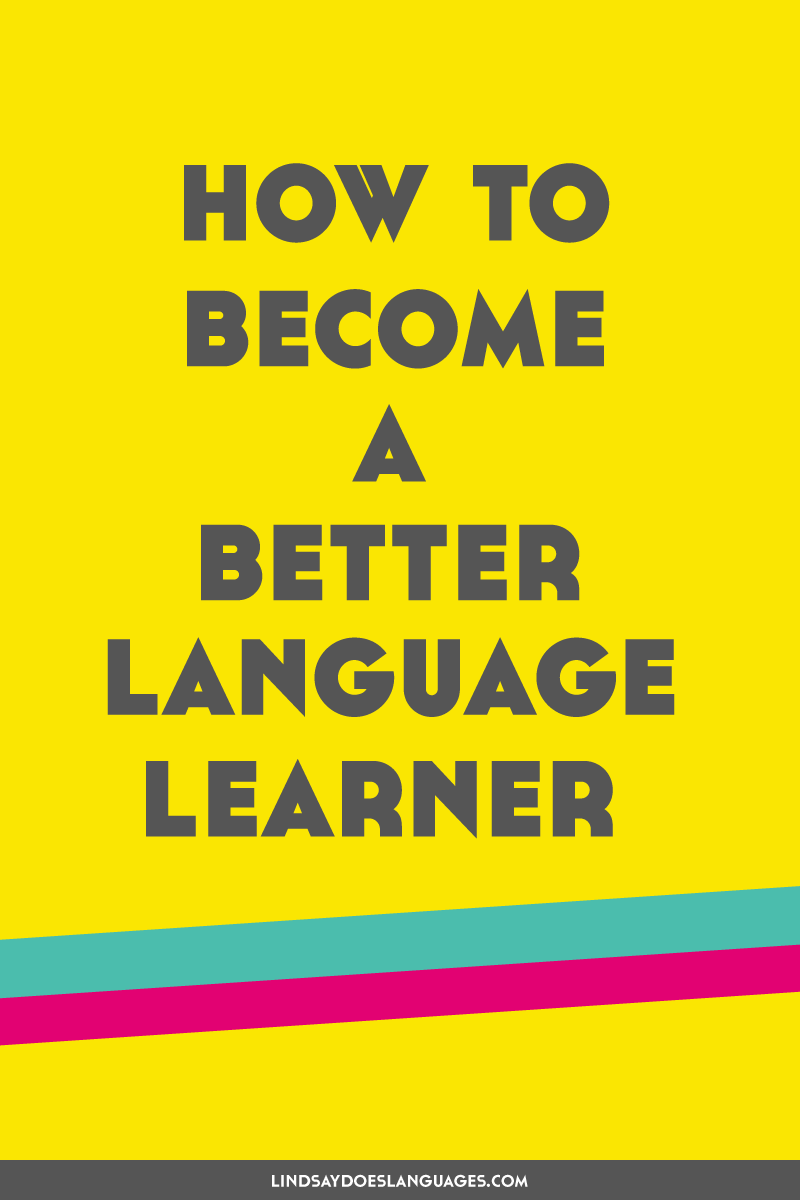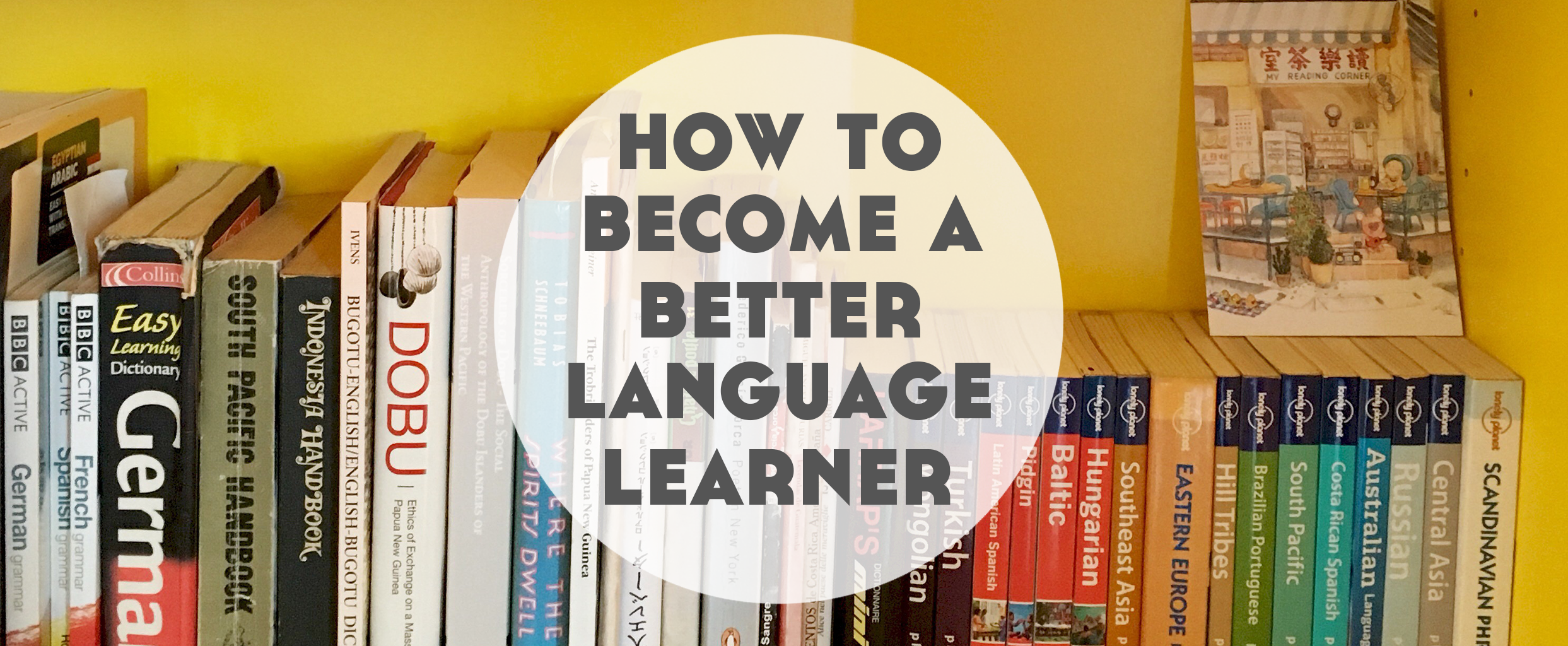November 12th, 2021
How to Become a Better Language Learner
I’m wrapping up a module on second language acquisition as part of my part time MA and there’s no way I can keep this stuff to myself! Settle in because we’re about to learn how to become a better language learner.

So there’s a lot out there already about linguistic research into how we learn languages. You’ve probably heard people talk about Krashen and comprehensible input before, right? There’s a lot more to help us here than just Krashen.
Personally, I think it’s kinda helpful to see a full picture of this stuff when we’re learning languages. This is what Language Life is all about.
Because there is no one way to learn a language. And there is no one linguist that’s found that one way. But there is someone who’s shared a much broader view of language learning: Joan Rubin.
Rubin literally wrote a book called How to Be a More Successful Language Learner. She’s written lots on the topic to be honest, but we’re going to focus on one paper in particular called ‘What The Good Language Learner Can Teach Us’. We’re going to look at some key points Rubin makes and see how we can think about applying these as language learners. You ready? Let’s go!
“The good language learner is a willing and accurate guesser.”
This could be when we’re guessing a word or structure for something we want to say or write, or when we’re trying to understand something we read or listen to.
There’s really two points here to think about: willing and accurate. You’re probably not going to guess correctly if you’re not willing enough to try in the first place.
So before we worry about how accurate our guesses will be, we need to figure out how we can become more willing to make guesses in the first place.
How can we do this?
I’m gonna tell you something now that should be pretty predictable but we always need reminding of: trust your instinct.
I can’t count the amount of times I’ve been speaking a language and not known a word so attempted to conjugate that verb aloud, or said the English word with a bit of an accent and…(get this) been right.
It really is about trusting that you might get it right. And if that sounds scary, ask yourself this: what’s the worst that happens if you guess wrong?
Seriously. You’re a little bit misunderstood? You have to backtrack and laugh off what you were trying to say? It’s really not the end of the world when we guess incorrectly. So we may as well try.
“The good language learner has a strong drive to communicate, or to learn from a communication.”
So the good language learner is motivated to speak and write, or learn from what they encounter too.
Motivation is such a key factor in successful language learning, which is exactly why there’s a whole module on Motivation and Mindset in Language Life.
And there’s a whole heap of research into language learning motivation too. We won’t go into it all here but if you want to learn more, Zoltán Dörnyei is a great name to Google!
How can we do this?
There’s a reason you started to learn a language – something that initially motivated you. Perhaps it’s the same now, or maybe it’s evolved into a new motivation (or motivations – plural!). If you’re not feeling motivated, it’s always worth finding a way to reconnect with that initial feeling, as well as searching for new ones.
But what about the second bit – you may be motivated to learn, but are you motivated to communicate or learn from communication?
Here’s where it can help to add a little pressure – some stakes, if you prefer. It might come in the form of booking a trip, arranging a test, finding a new local meetup, starting a new class – anything that puts a deadline on when you’ll want to be using the language. This can be a great motivator to actually practice speaking and understanding.
Related: 5 Struggles With Self-Study Language Learning Motivation You’ve Probably Experienced (and what to do about them)
https://www.lindsaydoeslanguages.com/5-struggles-with-self-study-language-learning-motivation-youve-probably-experienced-and-what-to-do-about-them/
“The good language learner is often not inhibited.”
This makes sense if the ‘good language learning’ is ‘willing’ to guess. Either feeling no fear of using and exploring the language, or ignoring fear when it presents itself. Plenty of linguists have found that foreign language anxiety is an affective variable that can affect language learning success.
‘Affective’ just means all the touchy feely stuff – feelings, moods, attitudes. Think the rainbow cake girl in Mean Girls. She just has a lot of feelings. (And she doesn’t even go here.)
Foreign language anxiety can originate from many sources, and can be creeping in with one area – say reading or speaking – or just hovering over the whole experience like a big cloud.
How can we do this?
I don’t think it’s too helpful to generalise here.
If you think your foreign language anxiety is related to broader anxiety, or you’ve been diagnosed with anxiety, then please don’t think that what I’m about to share is a wonder fix. But if you do find yourself feeling a little inhibited around languages in particular, read on. As always, take only what you need.
If I’m really honest here, I find that feeling less inhibited using or understanding a language comes from spending more time with it.
And it’s true that what you do in that time is what you’ll feel less inhibited with in the future. So if you want to work on speaking confidence, practice speaking in a safe environment as much as possible to build that up.
The truth here is that it’s very much a case of time and practice – two words people are afraid to utter when it comes to language learning sometimes! Ha!
We want it quick and easy, right? How frustrating that it’s going to take time and practice instead. Well…no.
There’s lots of joy to be found when we take our time and spend longer exploring a language. Embrace it and you might just surprise yourself.
Related: How to Overcome Shyness When Speaking a Foreign Language
https://www.lindsaydoeslanguages.com/how-to-overcome-shyness-when-speaking-a-foreign-language/
“…the good language learner is prepared to attend to form.”
Rubin goes on to add the ‘good language learner’ looks for patterns and is continually analysing language they encounter.
There’s a few ways you attend to form. Before, during or after speaking. Intentionally or as it comes up. Asking, guessing, being explained to, getting feedback.
Basically, we’re paying attention to the grammar and the structure of what we’re saying rather than just putting words out our mouth and hoping for the best.
How can we do this?
Languaging.
I know, it sounds like a made up word. (Aren’t all words made up at some point?)
Languaging means talking about language. Talking it out. Figuring out what that verb ending is, asking why you use this word here, guessing the gender of a new noun.
This is a great way to consciouly attend to form.
“The good language learner practices.”
In the book Learning Teaching, the process of language learning is explained like this:
IMAGE
The ‘good language learner’ knows that trying and using are two core stages in this process that need to be initiated by themselves as much as possible, especially in addition to classroom and supported learning.
Would you get up on stage with an oboe after buying it and having had it sat on your shelf for a few months? Hell no!
You’d want to spend time practising and waking the neighbours at all hours with your ever so slightly out of tune oboe playing until you’re sounding like…I don’t know any famous oboe players. Until you’re sounding good.
Language learning is the same. We can’t expect to jump right into a live unscripted conversation with a stranger and just magically put the words out in the right order with flawless pronunciation. We need practice.
How can we do this?
The best practice happens when you’re comfortable. Lots will happen solo where no one can hear you and there’s no potential negative consequences. Lots will happen in safe environments with people you trust.
So how do we practice more? We start talking to ourselves and we find safe opportunities to practice. Go, go, go!
Related: How to Start Speaking a New Language For The First Time
https://www.lindsaydoeslanguages.com/how-to-start-speaking-a-new-language-for-the-first-time/
“The good language learner monitors.”
Now onto the bit you’ve probably already heard people on the internet talk about: Krashen.
First of all, Krashen isn’t a bad guy. He’s not wrong. But the thing with Krashen is that he’s been held up again and again on the internet.
Sometimes, you just wanna hear another record, right? We even joke about having a Krashen Klaxon on The Fluent Show podcast because he’s mentioned so much!
But…this is the bit where I mention Krashen. Sound the Krashen Klaxon.
First, a bit of background – Krashen makes a difference between acquisition and learning.
He says that acquisition happens without us realising. He says learning is the more active time we spend “learning” rules, words etc. Basically what we typically think of as learning a language. And he says acquisition is more important than learning. This is why his Comprehensible Input gets brought out lots and lots – it sounds nice to think we can just read stuff without really thinking and learn a language.
One of Krashen’s theories is the Monitor Hypothesis. Ooo, fancy. This is all about using our learning (the rules, the words etc) to ‘monitor’ what we or others say.
How can we do this?
You probably already do this to some extent. If you care about your language learning results, you’re likely already either overusing or underusing your ‘monitor’. Or you’re Golidilocks and monitoring just right.
In other words, you’re either paying so much attention to what comes out that you end up saying nothing for fear of getting it wrong. Or you’re not thinking enough and are just speaking willy-nilly without much care.
Have a think next time you’re speaking (or listening to others) and see where you’d place yourself. Paying too much attention and not saying a word? Try letting go of perfectionism a little. Not enough attention? Try raising your awareness on it next time. Gradually, you might find yourself hitting a sweet spot. Oh hello, better language learner!
“The good language learner attends to meaning.”
So basically, as well as paying attention to ‘form’ (aka, grammar, how correct stuff is), you’re also paying attention to the meaning of what you’re actually saying or writing.
Lots of this comes from cultural and social clues. Did someone just tell you to shut up in a quiet exam hall or with tears of laughter rolling out their eyes after you told your favourite joke ever?
This stuff all affects meaning. And the good language learner knows it.
How can we do this?
One part of this is that language and culture should be inseparable. But sometimes in the fog of vocab lists and grammar tables, the culture bit gets kinda hazy and lost.
To bring it back, find something you love to watch in the language – I’m specifically thinking of film or TV. Not only does this give you cultural exposure, but it also gives you a chance to observe meaning attached to language in different settings.
Then, next time you’re speaking in real life with someone, try to be conscious of the meaning embedded in what they’re saying too. Again, it’s all about practice and time.
And don’t worry if this feels like a lot to think about at once!
You don’t have to focus on meaning and form and monitor and pracice and…phew. Breathe.
It’s all good. Take it easy and pay attention to what you can at any one time. You got this.







